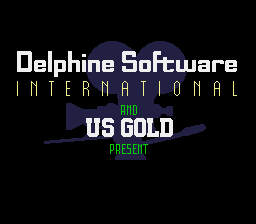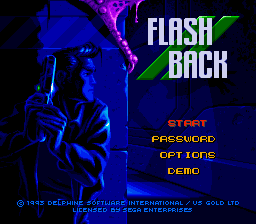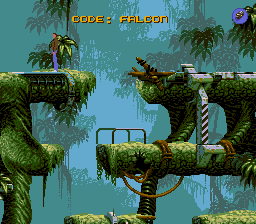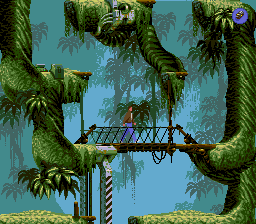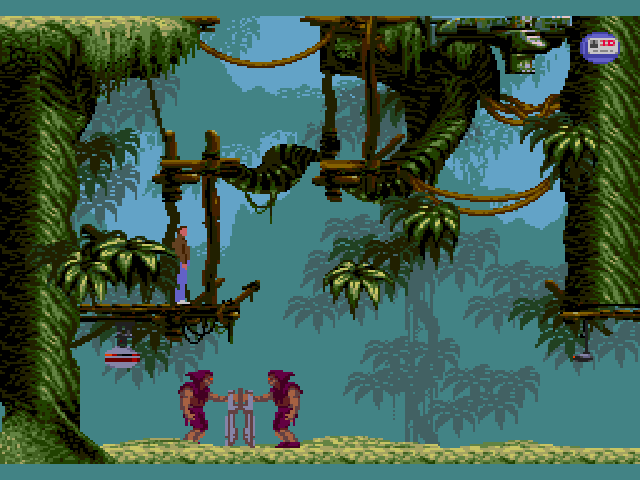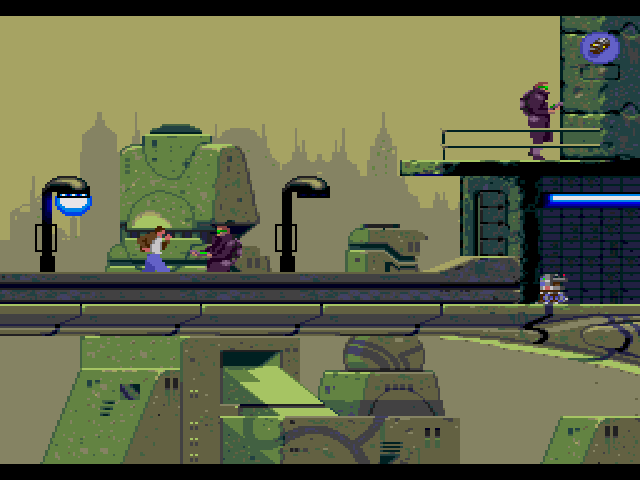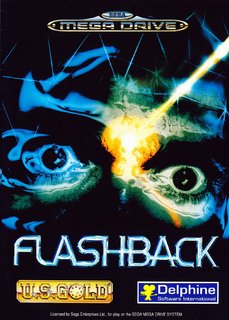Flashback: The Quest for Identity for SEGA Genesis
SEGA GenesisGame controls in browser
Show Controller & SystemClick on play Sega Genesis game now button first to load the game into emulator. Control keys:
Flashback: The Quest for Identity
Online version of Flashback: The Quest for Identity for SEGA Genesis. Flashback, released as Flashback: The Quest for Identity in the US, is a cinematic platformer developed by Delphine Software of France. The game is set in the year 2142 and details the journey of Conrad B. Hart, an agent for the Galaxia Bureau of Investigation, and his attempts to recover his lost memory to save the world. During one of his investigations, Conrad discovers a plot to destroy the Earth involving aliens that disguise themselves as governmental officials...
Game details
Covers - Box Art
SEGA Genesis / Mega Drive
Online emulated version of Flashback: The Quest for Identity was originally developed for the Sega Genesis
known as the Mega Drive outside North America. It was a 16-bit fourth-generation home video game console developed and sold by Sega.
The Genesis is Sega's third console and the successor to the Master System. Sega released it as the Mega Drive in Japan in 1988,
and later as the Genesis in North America in 1989. In 1990, it was distributed as the Mega Drive by Virgin Mastertronic in Europe.
Designed by an R&D team supervised by Hideki Sato and Masami Ishikawa, the Genesis was adapted from Sega's System 16 arcade board, centered on a
Motorola 68000 processor as the CPU, a Zilog Z80 as a sound controller, and a video system supporting hardware sprites, tiles, and scrolling.
It plays a library of more than 900 games created by Sega and a wide array of third-party publishers delivered on ROM-based cartridges.
Several add-ons were released, including a Power Base Converter to play Master System games. It was released in several different versions,
some created by third parties.
Contributing to its success were its library of arcade game ports, the popularity of Sega's Sonic the Hedgehog series, several popular sports franchises, and aggressive youth marketing that positioned it as the cool console for adolescents. 30.75 million first-party Genesis units were sold worldwide.

